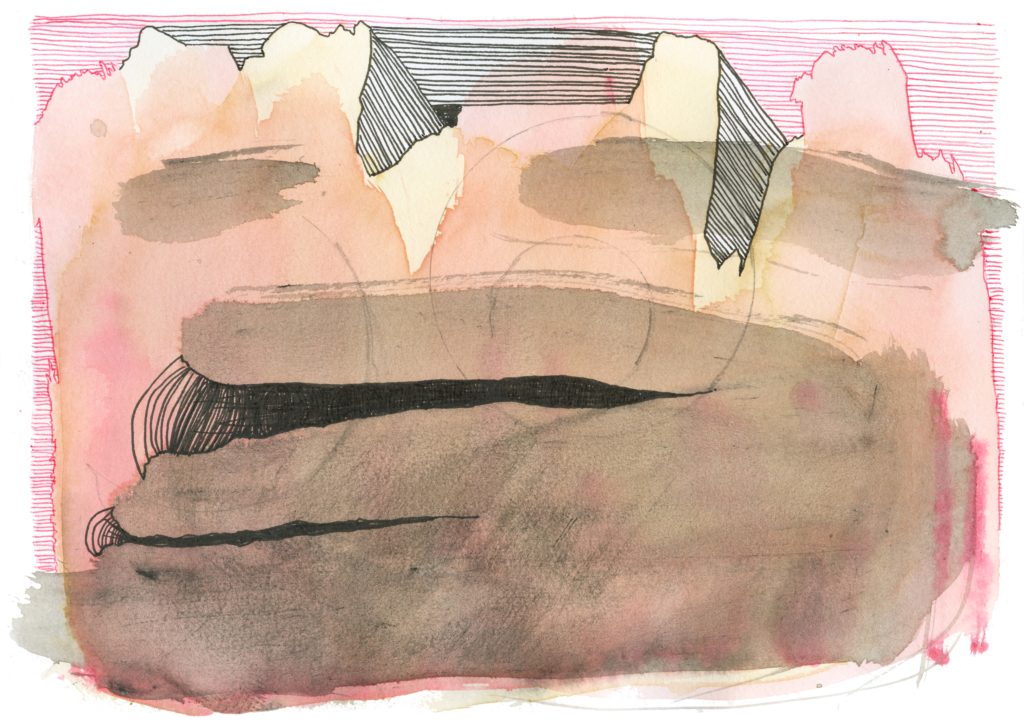
Although no adult had declared it off-limits, the trainyard gave off the creosote smell of the forbidden. The place felt dangerous, with grass tall as our thighs, insects buzzing, grasshoppers springing this way and that in the brittle summer heat. It was the kind of place where I always seemed to end up with Patrick. My mother loved it whenever he rang the doorbell because she’d likely been trying to get me to put down my book and go outside. “You’re going to hurt your eyes with your nose always stuck in a book like that.” If she only knew the kinds of places we went: to the swamp behind the dairy, the cliffs above the quarry, the razor-wired scrap yard with the chained twin Dobermans.
One rusted railroad track split into two there, and a huge vertical lever that would send the train down one track or the other jutted up from a rusty stanchion deep in the weeds by the footpath that Patrick and I had followed half a mile to get there. Neither of us was strong enough to budge it, although we tried, first each of us alone—competitively, as if trying to pull Excalibur from the stone — then joining forces, the combined 150 pounds of us grunting and straining. Nothing doing. Patrick spit. A thumb-sized grasshopper landed on my sneaker and I kicked him off.
That’s when I started wondering what would have happened if we had managed, with all our twelve-year-old might, to screech the rusty inner track those few impossible inches. Where might the train have arrived? I pictured people disembarking in a busy city—New York to the east, Chicago to the west — some of them laughing and shaking their heads, some puzzled and asking one another what happened, some irate at the conductor.
And what if we had put the train on a collision course? What if miles from here, a desperate horn blew just before the terrible wreck, cars buckled and broken, uncoupled, overturned, dead bodies everywhere and all because of us?
We hadn’t considered any of it, testing ourselves against the intractable adult world; not for a single moment. I thought I understood something about us then. I looked at Patrick who had begun throwing rocks, trying to land them in a freight wagon. All around us were freight cars and open wagons and flatbeds, and it dawned on me that none of them had moved in months, maybe years.
Patrick lobbed a big rock into a rusty gondola. “Let’s go
home,” he said. “This is boring.”
__
Richard Hoffman has published four volumes of poetry, Without Paradise; Gold Star Road, winner of the Barrow Street Press Poetry Prize and the Sheila Motton Award from The New England Poetry Club; Emblem; and his new collection Noon until Night. His other books include the celebrated Half the House: a Memoir, published in a 20th Anniversary Edition in 2015 with an introduction by Louise DeSalvo, the 2014 memoir Love & Fury, and the story collection Interference and Other Stories. His work, both prose and verse, appears in such journals as Agni, Barrow Street, Colorado Review, Consequence, Harvard Review, Hudson Review, The Literary Review, The Manhattan Review, Poetry, Witness and elsewhere. He is Senior Writer in Residence at Emerson College in Boston, nonfiction editor at Solstice: A Magazine of Diverse Voices, and an adjunct Assistant Professor at Columbia University
Artwork by Dev Murphy

5 comments
Jan Priddy says:
Jan 17, 2019
This brings back so much for me. Thank you.
ryder ziebarth says:
Jan 17, 2019
So vivid. I love your work and this is why.
Andrew Huta says:
Feb 6, 2019
I am a high school student and we are reading some pieces in class. I love all the detail you use to set the scene. As soon as I read the first paragraph, I could imagine the scenery right away. I also enjoy the actual story being told. It is interesting and easy to relate to.
Quinn says:
Feb 6, 2019
I am a high school student and read this in class, and I could relate to it. I also like trains and adventure, and this story had some great imagery! Nice!
Suzanne Farrell Smith says:
Feb 10, 2019
Wonderful piece! “We hadn’t considered any of it, testing ourselves against the intractable adult world; not for a single moment.” I will hold this in my mind as I watch my young sons explore new territory. (Today, the crawlspace.)